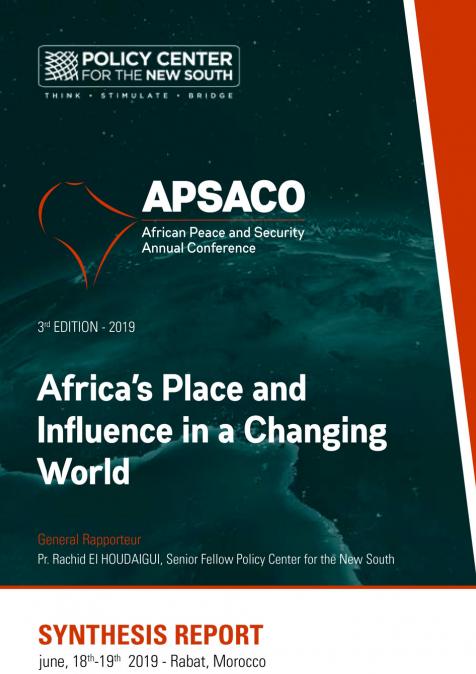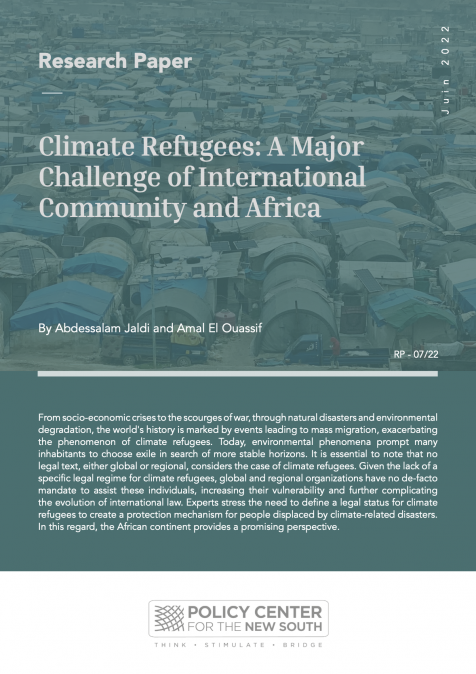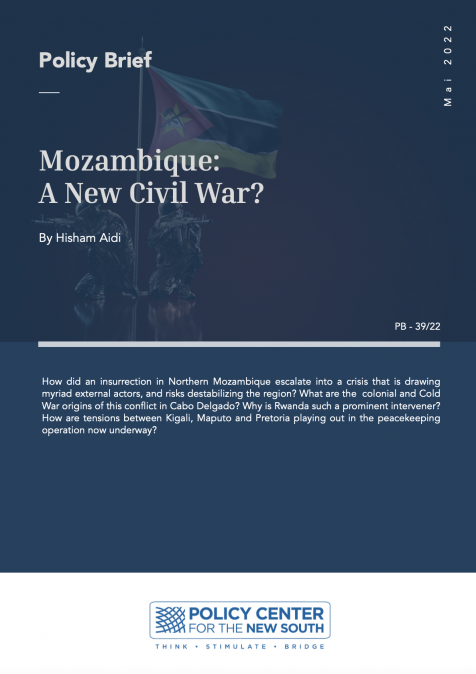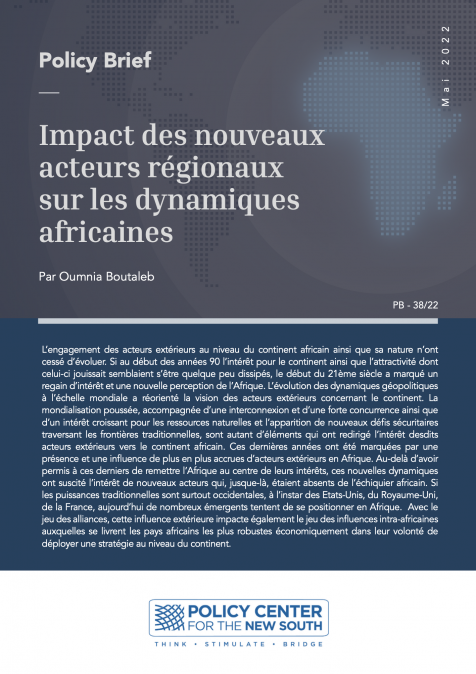Publications /
Book / Report
The third edition of the African Peace and Security Annual Conference (APSACO) was held on June 18-19th 2019 under the theme “Africa's Place and Influence in a Changing World”. The two-day event, organized by Policy Center for the New South (PCNS), was launched with the publication of the Annual Report on Africa’s Geopolitics, Followed by five panels :
- Panel 1: Africa and the world or How to balance Mutual perceptions;
- Panel 2: Africa and the production of strategic and normative knowledge;
- Panel 3: Africa’s resilience through mutual efforts;
- Panel 4: How is Africa dealing with conflict prevention and management?
- Panel 5: Is Africa moving towards a collective strategy aligned with the game of international powers?
As it has become the trademark of PCNS conferences, APSACO gathered experts from different parts of the world, fields and professions – from the military and political world to academics and the civil society – to ensure a broad and fruitful conversation.
This report presents and summarizes the chairs’ and speakers’ interventions and the main issues tackled during the conference. More information on the participants, the agenda and other data is attached to this document.









